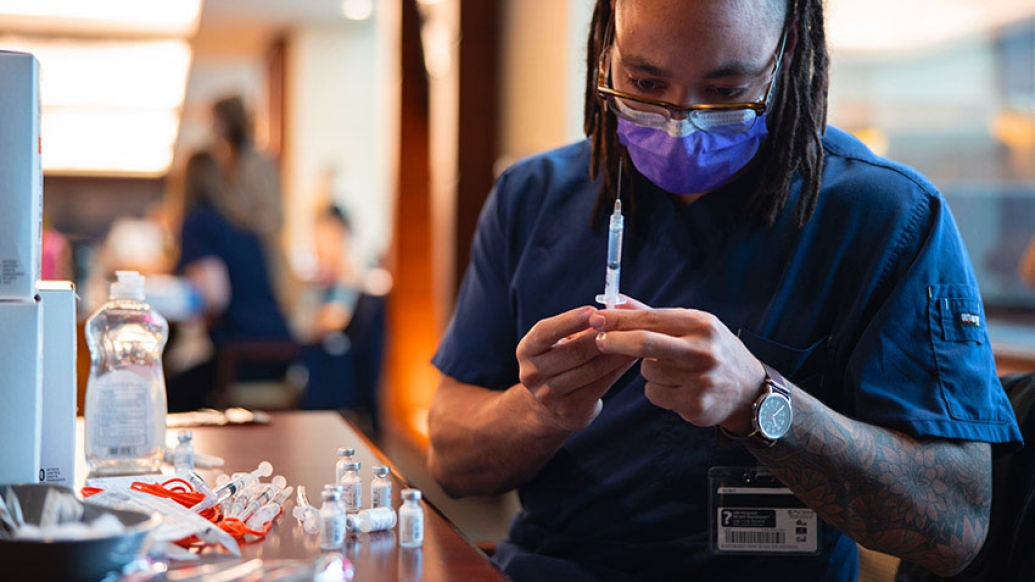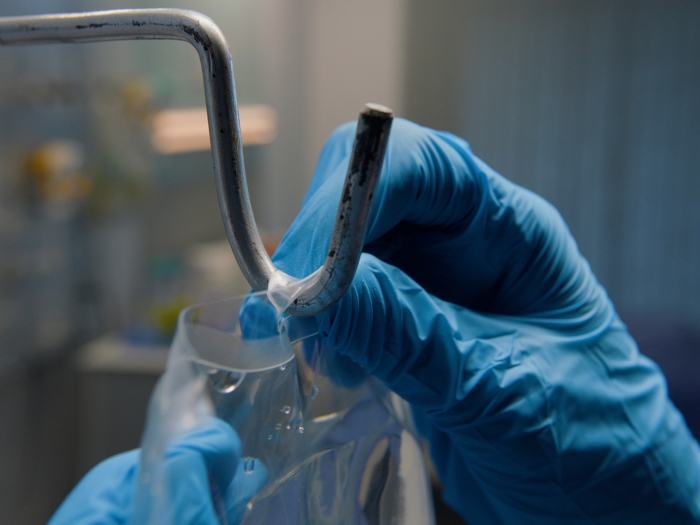An NIH study, co-led by a Michigan Medicine researcher, will follow participants over 13 months.
2:45 PM
Author |

In recent months, mounting evidence has suggested the standard two-dose regimen for mRNA COVID-19 vaccines does not offer as much protection for immunocompromised people as it does for the general population.
Despite making up less than 3% of the U.S. adult population, immunocompromised people account for nearly 45% of breakthrough COVID-19 infections requiring hospitalization.
Given the available data, the Centers for Disease Control and Prevention has recommended that people who are moderately to severely immunocompromised receive a third dose of the mRNA vaccine. The FDA authorized the additional dose August 12.
Like Podcasts? Add the Michigan Medicine News Break on iTunes or anywhere you listen to podcasts.
The recommendation is based on a few studies that suggest immunocompromised people will produce higher levels of antibodies after a third dose. However, there are no control trials that focus specifically on the antibody responses to additional shots by those with autoimmune disease.
Now, a team of researchers co-led by a Michigan Medicine rheumatologist is launching a national trial to explore just that.
The focus of the study will be on Americans with autoimmune disease who did not present a strong immune response to two doses of the Pfizer-BioNTech vaccine, two doses of the Moderna vaccine or one dose of the Johnson & Johnson/Janssen vaccine. The Phase II trial is sponsored and funded by the National Institute of Allergy and Infectious Diseases (NIAID), part of the National Institutes of Health. It will be co-led by Dinesh Khanna, M.B.B.S., M.Sc., the Frederick G.L. Huetwell professor of rheumatology and the director of the scleroderma program at Michigan Medicine.
"Although the FDA has recently approved booster vaccines for immunocompromised patients under emergency use authorization, there are several advantages for patients to participate in this 12-month adaptive trial design," Khanna said. "It allows us to carefully evaluate if the patients respond to the booster vaccine, continue to assess for durability of the vaccine over time and assess risk of flare of the underlying autoimmune disease."
The clinical trial to assess efficacy of a third COVID vaccine dose will include approximately 600 adult participants with one of five autoimmune diseases:
-
multiple sclerosis
-
pemphigus
-
rheumatoid arthritis
-
systemic lupus erythematosus
-
systemic sclerosis
Trial participants, who will be followed for 13 months, must be on immunosuppressive therapies and have demonstrated poor antibody response to an authorized COVID-19 vaccine regimen. Those medications include mycophenolate mofetil (MMF) or mycophenolic acid (MPA), methotrexate (MTX), or B cell-depleting drugs.
The research team will also examine whether pausing immunosuppressive medication improves immune response to the booster shot.
MORE FROM THE LAB: Subscribe to our weekly newsletter
"To hold or withhold the immunosuppressive therapies is an important issue for patients with autoimmune disease," Khanna said. "On one hand, it may improve the response to the booster, and on the other hand, it may lead to disease flare. This trial will carefully evaluate this in a controlled fashion."
Preliminary results are expected in November of 2021.
For more information about the COVID-19 Booster Vaccine in Autoimmune Disease Non-Responders trial, go to ClinicalTrials.gov and use NCT05000216 as an identifier.

Explore a variety of health care news & stories by visiting the Health Lab home page for more articles.

Department of Communication at Michigan Medicine
Want top health & research news weekly? Sign up for Health Lab’s newsletters today!





